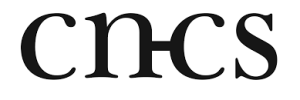
Moralities in the Long Nineteenth Century
Centre for Nineteenth-Century Studies One-Day Conference
Saturday 18 February 2017
Durham University, UK
Keynote Address:
"Alternative moralities in the long nineteenth century." Paul Watt, Monash University, Australia
'We do not look in our great cities for our best morality' -Jane Austen
'Conventionality is not morality' -Charlotte Brontë
Austen and Brontë are just two of myriad examples reflecting the complexity of moral discourses of the long nineteenth century. Morality was not fixed in time and place but subject to change often driven by public opinion. Although moral and social reformers tried to regulate morality and construct narratives to universalize attitudes and behavior moral codes were varied, contested and constantly changing.
This conference aims to explore the extremely varied nature and meanings of morality in the long nineteenth century and contest the usual top-down moral discourses defined by institutions such as the monarchy and social reformers. It seeks papers proposing new and pluralist readings of long nineteenth-century morality from the widest possible range of disciplinary and interdisciplinary perspectives including history, philosophy, socio-legal studies, urban studies, cultural studies, musicology, anthropology, sociology, and gender and queer studies.
Suggested research questions include:
Abstracts are invited for individual papers of 20 minutes as well as panel presentations of 3 speakers (90 minutes) or four speakers (120 minutes).
Abstracts must be no longer than 300 words, be formatted in a single paragraph, and not include footnotes or be accompanied by keywords. They should be saved and named by using the presenter’s last name.
All papers accepted for the conference will be considered for expansion into an edited book collection and/or a number of special-issue journals.
Abstracts should be emailed to cncs@durham.ac.uk with the subject heading ‘Moralities Conference Abstract Submission’ by 5pm on 1 September 2016. A decision will be made on acceptance by 1 November 2016.
More details can be found on the conference webpage: www.durham.ac.uk/cncs/conferences/moralities.